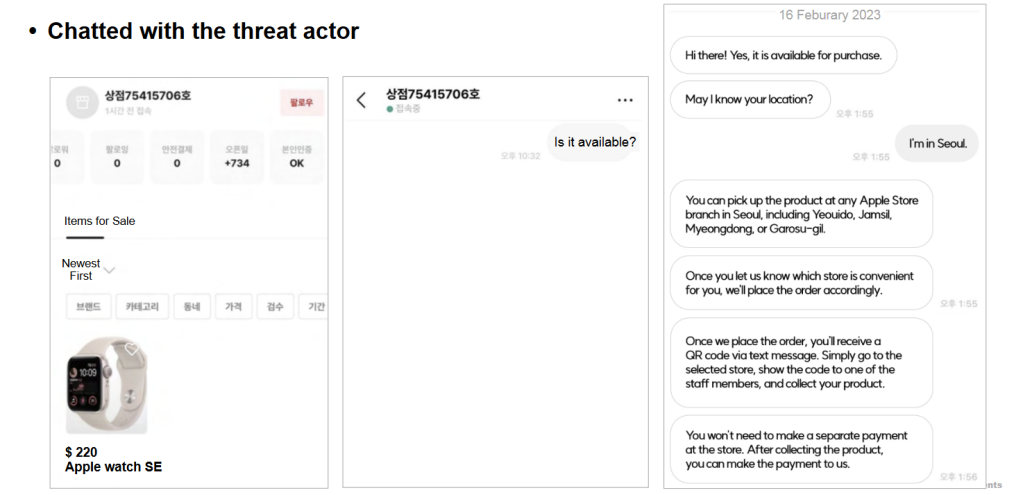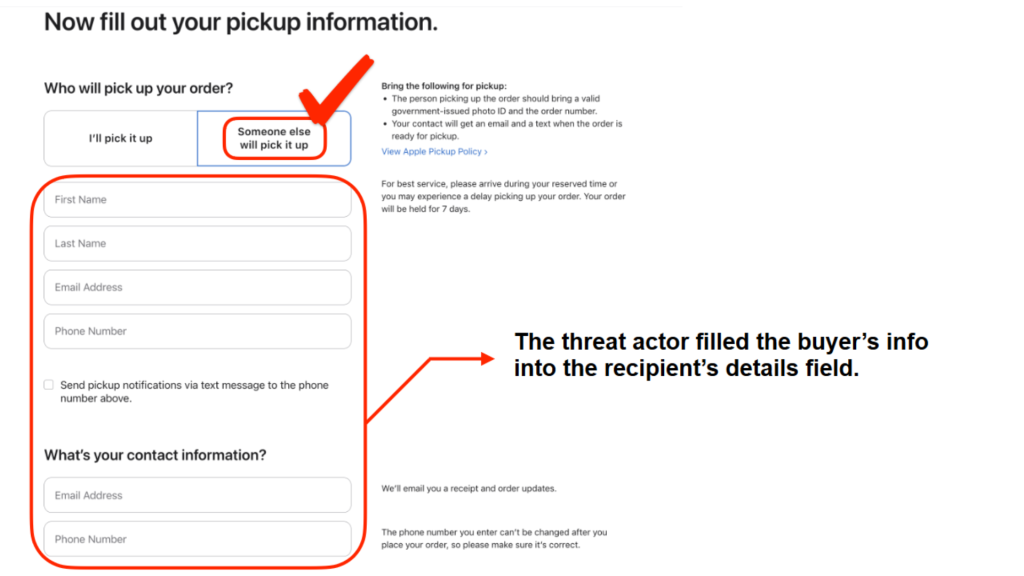At this yr’s annual hacking convention, Black Hat Asia, a staff of safety researchers revealed how cybercriminals are sneakily utilizing stolen bank cards and Apple Retailer On-line’s ‘Another person will choose it up’ possibility in a scheme that has stolen over $400,000 in simply two years.
9to5Mac Safety Chew is solely dropped at you by Mosyle, the one Apple Unified Platform. Making Apple units work-ready and enterprise-safe is all we do. Our distinctive built-in strategy to administration and safety combines state-of-the-art Apple-specific safety options for absolutely automated Hardening & Compliance, Subsequent Technology EDR, AI-powered Zero Belief, and unique Privilege Administration with essentially the most highly effective and fashionable Apple MDM available on the market. The result’s a completely automated Apple Unified Platform presently trusted by over 45,000 organizations to make tens of millions of Apple units work-ready with no effort and at an reasonably priced value. Request your EXTENDED TRIAL in the present day and perceive why Mosyle is all the pieces you have to work with Apple.

In line with Gyuyeon Kim and Hyunho Cho with the Monetary Safety Institute of South Korea, in September 2022, she and her colleague uncovered a string of cyberattacks in opposition to greater than 50 reliable on-line shops, exposing main information breaches that had occurred. Nevertheless, upon additional evaluation, they discovered risk actors have been thinking about greater than a fast heist of person information.
The cybercriminals managed to govern the cost pages of those on-line shops to transmit bank card and private data to their servers, along with the reliable ones, to assist stay undetected.
“These risk teams employed numerous evasion methods to stop detection of their phishing pages by website directors and customers, utilizing a number of vulnerabilities and instruments,” the safety duo acknowledged of their Black Hat briefing.
Nevertheless, stealing bank cards was only one a part of the plan.
One of many risk actor’s major methods of cashing in was leveraging Apple Retailer On-line’s ‘Pickup Contact’ coverage, in keeping with the research. “The last word goal of this operation was monetary achieve,” defined Kim.
The scheme begins with promoting new Apple merchandise at “discounted” costs in second-hand on-line shops in South Korea. From what the analysis describes, these look like the equal of a Craiglist or eBay. When the client reaches an settlement with the vendor, or on this case, the risk actors, beforehand stolen card credit score particulars are used to buy the precise product from the Apple Retailer.

Picture through Black Hat Asia/Gyuyeon Kim and Hyunho Cho
As a substitute of getting it shipped, the cybercriminals set the merchandise to the ‘Another person will choose it up’ possibility on Apple’s web site. This permits approved people to choose up on-line orders at an Apple retail retailer by presenting a authorities picture ID and QR code/order quantity. The customer from the second-hand retailer can be designated because the third celebration in a position to choose up the product that was unknowingly bought with a stolen bank card.
Solely after the client picks up the product do they pay, presumably by means of the second-hand retailer. The risk actor might miss out if the client doesn’t ship the agreed-upon quantity.
As an example, a brand-new iPhone 15 price $800 may very well be listed for $700 on the second-hand market. The value can be low sufficient to draw curiosity however excessive sufficient to not seem as a rip-off. After discovering an purchaser, the criminals would buy the machine utilizing a stolen bank card quantity obtained by means of their phishing operations and pocket the $700 paid by the client from the second-hand retailer.

Picture through Black Hat Asia/Gyuyeon Kim and Hyunho Cho
“A stolen card was used to make a $10,000 cost at an Apple retailer, however Apple’s refusal to cooperate attributable to inside laws has hindered the investigation,” citing the researcher’s presentation at Black Hat Asia. “Regardless of Mr. Yoon’s efforts to report the incident to each the cardboard firm and the police instantly, Apple’s lack of cooperation has led to over a month of investigation delays. Apple’s refusal to offer any data, citing inside coverage, has sparked criticism each domestically and in america, regardless of the corporate’s emphasis on privateness safety.”
Gyuyeon Kim and Hyunho Cho name the scheme “PoisonedApple,” which they imagine has generated $400,000 over the previous two years. The present scope is South Korea and Japan, however there’s no motive criminals in different international locations, together with america, might start doing the identical.
Who’s behind the scheme?
The researchers imagine the culprits are primarily based someplace in China as a result of phishing net pages being registered by means of a Chinese language ISP. Miraculously, whereas combing by means of darkish net boards, additionally they discovered mentions in simplified Chinese language of the identical e mail handle within the supply code.
Try the total Black Hat briefing and presentation right here.
Extra on this collection
Observe Arin: Twitter/X, LinkedIn, Threads
FTC: We use earnings incomes auto affiliate hyperlinks. Extra.













Leave a Comment